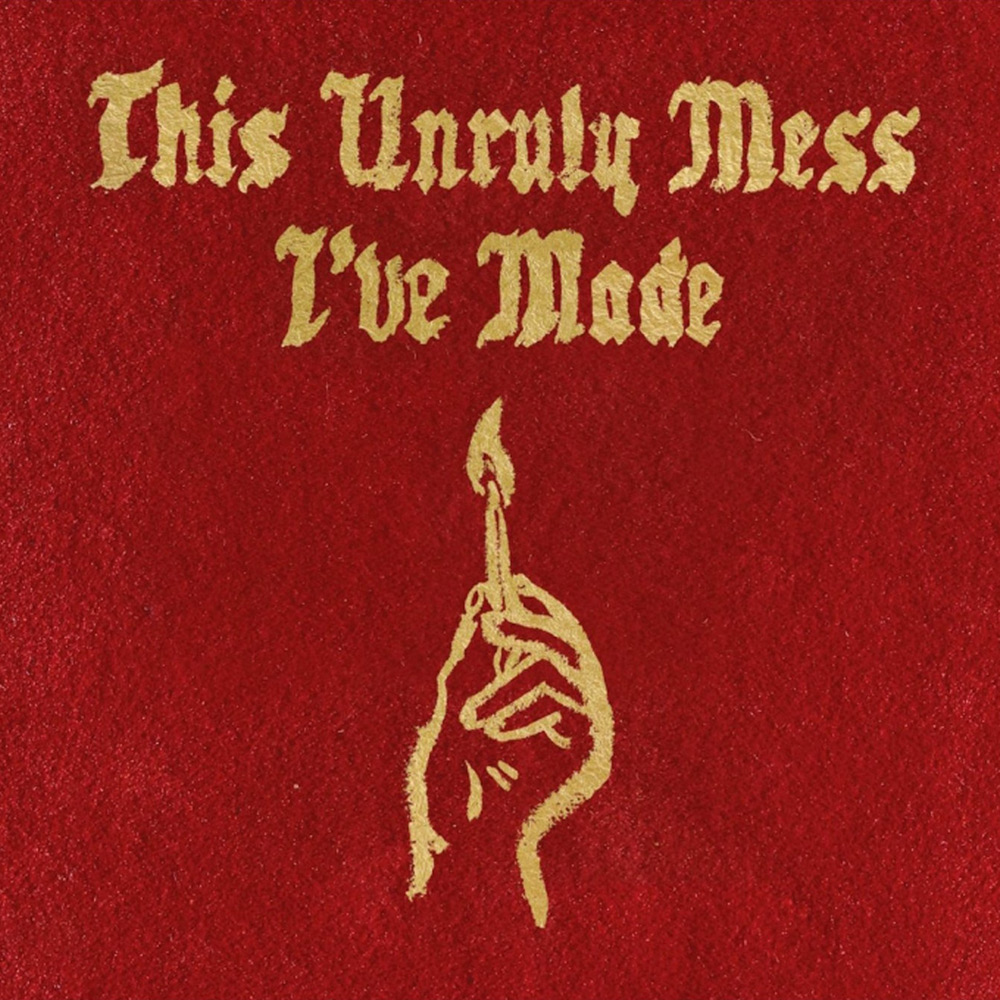Review: Macklemore & Ryan Lewis – This Unruly Mess I’ve Made

“If you aren’t scared of what you’ve created, you aren’t done yet.” Words to live by from the rap artist Ben Haggerty, known professionally as Macklemore. On February 26th, he and musical producer Ryan Lewis released their second album, This Unruly Mess I’ve Made, a follow-up to The Heist. Though the duo received the high honor of Best Rap Album during the 2014 Grammys, Macklemore is on record as saying that the award should have gone to Kendrick Lamar for good kid, m.A.A.d city. There is a raw truthfulness found in his music about all things that concern him and the world in which he exists. Much like The Heist and his early work as a solo indie artist, Macklemore continues to build on his brand of social commentary by addressing the tribulations that befall Generation Xers and Millennials. Self-medication, insecurities, and missed opportunity are just some of the topics on which he waxes poetic. And if you ever wonder what Macklemore thinks of himself and the industry in which he’s found critical acclaim, he welcomes this moment to unpack the layers and misperceptions without intentionally pointing fingers, though it does feel a bit soapbox at times. Not quite self-deprecating, Macklemore writes painstakingly honest verses about himself that illustrate what he’s experienced in the time since taking home four Grammys.
Though the new album tackles some heavy topics of so-called lacquered glory and tarnished failure, in true Macklemore fashion he brings a witty lyricism and lighthearted cleverness to certain songs that underscore his commercial appeal. The question will always loom – if Macklemore was a person of color, would he enjoy the same level of success as a rap artist as he’s received? A question that can only be answered with conjecture, Macklemore has taken it upon himself to address the very real notion of white privilege and how it lies at the core of his success, being a white rapper. But before we go there, because he does go there, it’s worth it to highlight what works on this Macklemore & Ryan Lewis album. Suffice it to say, the first single “Downtown” is the type of amusing pop hit that would be expected of the duo. Similar in vibe to their award-winning hit “Thrift Shop”, “Downtown” pays homage to hip-hop pioneers by inviting Kool Moe Dee, Grandmaster Caz, and Melle Mel to join Macklemore with his nod to the old-school cadences and inflections from the 1980s. It was important for him to include the OG MCs, as well as KRS-One and DJ Premier on “Buckshot”, to really give a sense of authenticity to the project. Equally as entertaining and radio-ready are the songs “Brad Pitt’s Cousin”, “Let’s Eat”, and “Dance Off” featuring Idris Elba and Anderson .Paak, giving way to production that feels familiar to what we’ve heard on The Heist. On the other end of the spectrum are the self-reflective stories that unfold throughout the remaining songs on the album. There’s “Light Tunnels” where Macklemore expresses the internal dialogue he had the moment his name was called at the Grammy Awards. Then you have “The Train”, a melancholy tune with simple piano chords enhanced by haunting Spanish vocals that sing of escaping to another city and life. He chooses to delve deeply into the psyche of trauma on “St. Ides”, “Need To Know”, and “Kevin” featuring Leon Bridges, which is written for a young friend who overdosed on prescription drugs.
What really sets this album apart is its final song, “White Privilege 2”, follow-up to part one on his solo project The Language Of My World. Featuring vocalist and activist Jamila Woods, the Associate Artistic Director of Young Chicago Authors, the song is a call to organize against racism and to dismantle white supremacy, as told from the perspective of a white rap artist. Since its release, all of social media and industry are abuzz debating the power and impact of such a song’s lyrical content and thematic makeup, though it was not written nor intended for people of color. “At the core of what this song is,” Macklemore responds to critics of why he would make a song about #BlackLivesMatter, “is an attempt to open up a dialogue with the platform that we have to reach white youth, to have a conversation about race, and put it out there. Because we can be silent. We can sit back behind the veil of white supremacy and still be comfortable. But that’s never gonna change anything.” Though he name-checks Iggy Azalea and Miley Cyrus, he speaks very pointedly about his own – Ben Haggerty a.k.a. Macklemore the rapper’s – cultural appropriation, personal accountability and personal responsibility. Though he’s received criticism across the board, a fear he expected, I have to applaud Macklemore for recording this type of song as a necessity, and for inviting voices of the movement to use his platform to address a topic that too often falls on deaf ears.
Written by Mai Perkins
Originally from Los Angeles, Mai Perkins is living a genuine bona fide love affair with NYC and the music that keeps its spirit moving. While spending the majority of the last decade in Brooklyn, many of her adventures around the globe are documented on her blog: Mai On The Move! www.MaiOnTheMove.com
Author’s rating for This Unruly Mess I’ve Made

Pop Magazine’s official rating for This Unruly Mess I’ve Made

Rating key
 MASTERPIECE a must-have
MASTERPIECE a must-have
 SUPERB for heavy rotation
SUPERB for heavy rotation
 EXCELLENT a great achievement
EXCELLENT a great achievement
 VERY GOOD a respectable result
VERY GOOD a respectable result
 GOOD worth checking out
GOOD worth checking out
 FAIR an average outcome
FAIR an average outcome
 WEAK not convincing stuff
WEAK not convincing stuff
 BAD an underwhelming effort
BAD an underwhelming effort
 VERY BAD quite a waste
VERY BAD quite a waste
 FAIL a total failure
FAIL a total failure




















Write a Comment